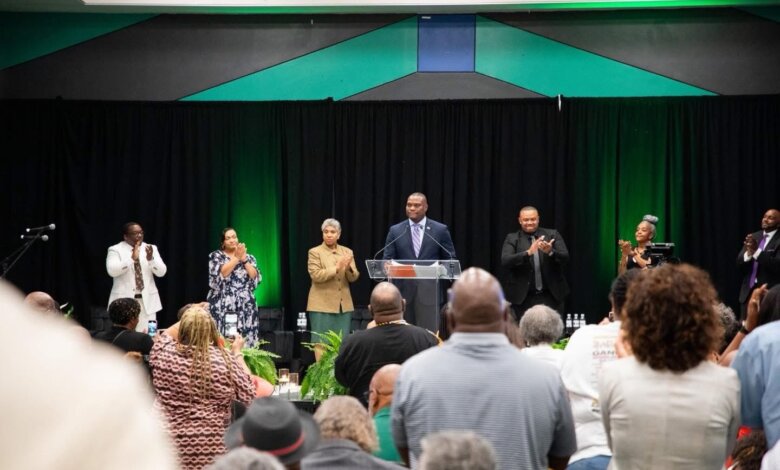Tulsa unveils $105m reparations initiative for 1921 Race Massacre

The city of Tulsa, Oklahoma, in the United States is taking a historic step towards repairing the damage done by the 1921 Tulsa Race Massacre by committing $105 million in reparative funding to support Black communities. The plan, introduced by Monroe Nichols, Tulsa’s first Black mayor, marks the city’s most ambitious effort to acknowledge and address one of the worst acts of racial violence in U.S. history.
Announced during Tulsa’s inaugural Race Massacre Observance Day on June 1, the initiative, called Road to Repair, emphasizes community redevelopment over direct financial payments. It includes a $60 million cultural preservation fund and a $24 million housing initiative aimed at combating urban blight and economic disenfranchisement in historically Black neighbourhoods.
The funds will be managed by the Greenwood Trust, named after Tulsa’s once-thriving Greenwood District, famously known as Black Wall Street. Nichols said the trust aims to have all $105 million either secured or pledged. The city council will not need to vote on the proposal, although it is expected to approve the transfer of public land to the trust for redevelopment.
Nichols linked the massacre’s legacy to a broader pattern of systemic harm, citing redlining, disinvestment, and the construction of highways that severed economic lifelines in Black communities. “For 104 years, the Tulsa Race Massacre has left a wound on the very soul of our city — hampering progress, opportunity, and hope. And while we can’t undo the past, we can seek righteousness at this moment,” he said.
The 1921 massacre saw a white mob destroy over 1,000 buildings and kill an estimated 300 Black residents in less than 24 hours, effectively wiping out one of the most prosperous Black communities in America. The attack’s aftermath devastated generations of Black Tulsans, and for decades, the event was omitted from textbooks and public memory.
Although efforts to secure reparations have long been stalled, most recently with a failed legal case by the massacre’s two remaining survivors, Lessie Benningfield Randle and Viola Ford Fletcher, Nichols believes Road to Repair offers a new model for restitution that balances justice and development.
Tulsa’s move comes at a time when national momentum around racial justice is wavering. Former President Donald Trump, now back in office, is dismantling diversity, equity, and inclusion (DEI) policies in federal agencies, while many corporations are scaling back similar initiatives.
Still, Tulsa’s plan stands as the most significant local reparations commitment tied directly to a racially motivated atrocity. It follows Evanston, Illinois, which in 2021 became the first U.S. city to offer reparations to Black residents through housing-related grants.
The national conversation remains fractured. Maryland’s first Black governor, Wes Moore, recently vowed to veto a proposal to create a reparations study commission, and while California has issued an apology and proposed some measures, it stopped short of direct cash payments.
For Nichols, the focus is clear, “There is much work to do, and this is not the end, but I’m excited at the promise of progress. I invite you to learn more about the Trust, read the historic documentation surrounding the Massacre…”
Written by Kweku Sampson

This article is published by either a staff writer, an intern, or an editor of TheAfricanDream.net, based on editorial discretion.





